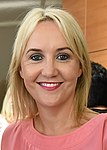The New Zealand National Party, shortened to National or the Nats, is a centre-right New Zealand political party that is the current senior ruling party. It is one of two major parties that dominate contemporary New Zealand politics, alongside its traditional rival, the Labour Party.

Paula Lee Bennett is a New Zealand former politician who served as the 18th deputy prime minister of New Zealand between December 2016 and October 2017. She served as the deputy leader of the National Party from 2016 to 2020 and as MP for Upper Harbour from 2014 to 2020.

Nicola Laura Kaye is a New Zealand politician who served as Deputy Leader of the New Zealand National Party and Deputy Leader of the Opposition from 22 May 2020 to 14 July 2020.

Simon Joseph Bridges is a New Zealand retired politician, broadcaster and lawyer. He served as Leader of the National Party and Leader of the Opposition between 2018 and 2020, and as the Member of Parliament for Tauranga from the 2008 election to May 2022, when he resigned. Bridges is the first and currently the only Māori person to serve as leader of a major political party in New Zealand.

Amy Juliet Adams is a former New Zealand politician of the New Zealand National Party and the current chancellor of the University of Canterbury, Christchurch, New Zealand. She was the Member of Parliament for Selwyn from 2008 to 2020, when she retired.

Todd Michael Muller is a New Zealand former politician who served as the Leader of the New Zealand National Party and the Leader of the Opposition from 22 May to 14 July 2020.

Shane Raymond Reti is a New Zealand politician and a member of the New Zealand House of Representatives, and a Cabinet Minister with the roles of Minister of Health and Minister for Pacific Peoples, since 27 November 2023. He was first elected at the 2014 general election as the Member of Parliament (MP) for the Whangārei electorate. He is a member of the New Zealand National Party and served as its deputy leader from 10 November 2020 to 30 November 2021 including a period of five days as interim leader following the ousting of Judith Collins.
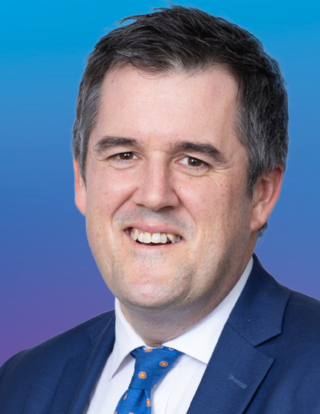
Christopher Bishop is a New Zealand politician for the National Party. He was first elected to the New Zealand House of Representatives in 2014 as a list MP. Bishop won the Hutt South electorate in 2017 but lost the seat in 2020. He returned to Parliament as a National list MP and served as National spokesperson for Housing and Infrastructure and was the Shadow Leader of the House. He was the Chairperson of National's 2023 Election Campaign. He is the current MP for Hutt South. He is a former lobbyist for tobacco company Phillip Morris.
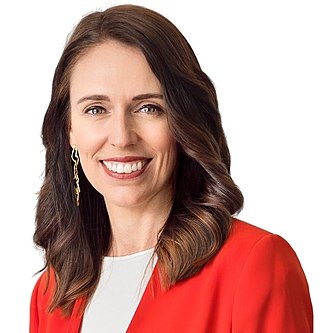
The 2020 New Zealand general election was held on Saturday 17 October 2020 to determine the composition of the 53rd New Zealand Parliament. Voters elected 120 members to the House of Representatives, 72 from single-member electorates and 48 from closed party lists. Two referendums, one on the personal use of cannabis and one on euthanasia, were also held on the same day. Official results of the election and referendums were released on 6 November.

The 52nd New Zealand Parliament was a meeting of the legislature in New Zealand, which opened on 7 November 2017 following the 2017 general election and dissolved on 6 September 2020. The New Zealand Parliament comprises the Sovereign and the House of Representatives, which consists of 120 members.

Harete Makere Hipango is a New Zealand politician. She was a member of parliament in the House of Representatives for the National Party and sat on the Māori Affairs Committee.

Nicola Valentine Willis is a New Zealand politician who is currently deputy leader of the National Party and minister of Finance in a coalition government with ACT and New Zealand First. Willis entered the New Zealand Parliament in 2018, when she inherited Steven Joyce's seat in Parliament as the next on the party list after his retirement from politics.
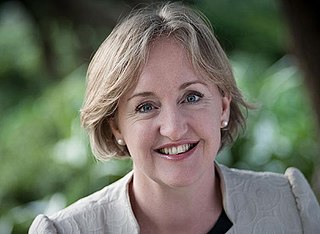
The 2018 New Zealand National Party leadership election was held on 27 February 2018 to determine the 12th Leader of the National Party. On 13 February 2018, Bill English announced his resignation as leader of the National Party, effective on 27 February 2018. He left Parliament on 13 March 2018. On 20 February, Deputy Leader Paula Bennett announced that a concurrent deputy leadership election would take place, in which she would stand.

The Shadow Cabinet of Simon Bridges was the official Opposition in the 52nd New Zealand Parliament between 11 March 2018 and 22 May 2020. It comprised all members of the New Zealand National Party, which was the largest party not a member of the Government.
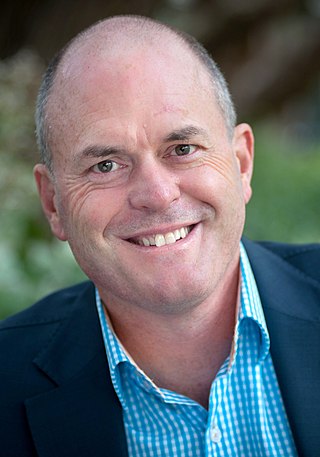
The Shadow Cabinet of Todd Muller was the official Opposition of the 52nd New Zealand Parliament. It comprised the members of the New Zealand National Party, which was the largest party not a member of the Government.

An election for the parliamentary leadership of the New Zealand National Party by its caucus was held on 14 July 2020, after incumbent Todd Muller resigned earlier that day citing health reasons. Judith Collins became leader of the National Party and of the Opposition of New Zealand.

The Shadow Cabinet of Judith Collins formed the official Opposition in the 53rd New Zealand Parliament, and previously in the 52nd Parliament. It comprised the members of the New Zealand National Party, which is the largest party not a member of the Government. On Collins' dismissal as leader on 25 November 2021, the cabinet essentially ceased to exist, but what remained was de jure led on an interim basis by her deputy leader, Shane Reti, until the next leadership election. The cabinet was succeeded by that of Christopher Luxon.
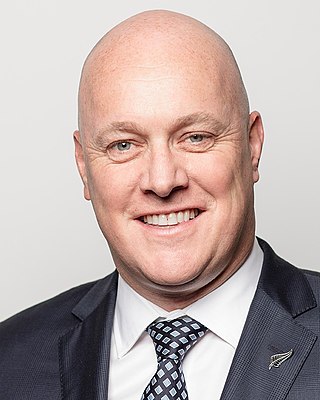
The 2021 New Zealand National Party leadership election was held on 30 November 2021 following the removal of leader Judith Collins in a vote of no confidence on 25 November 2021. Deputy leader Shane Reti was made interim leader until the election. Simon Bridges was the only person to publicly announce his candidacy. About an hour before the National Party caucus was set to meet, he withdrew from the race and endorsed Christopher Luxon.

The Shadow Cabinet of Christopher Luxon formed the official Opposition in the 53rd New Zealand Parliament from December 2021 to November 2023, replacing the Shadow Cabinet of Judith Collins. Christopher Luxon was appointed Leader of the National Party and Leader of the Opposition in a party leadership election on 30 November 2021.

The 2023 New Zealand Labour Party leadership election was held on 22 January 2023 to choose the next leader of the New Zealand Labour Party. The election was triggered by the resignation of Prime Minister and Labour Party Leader Jacinda Ardern, which was announced on 19 January 2023.


